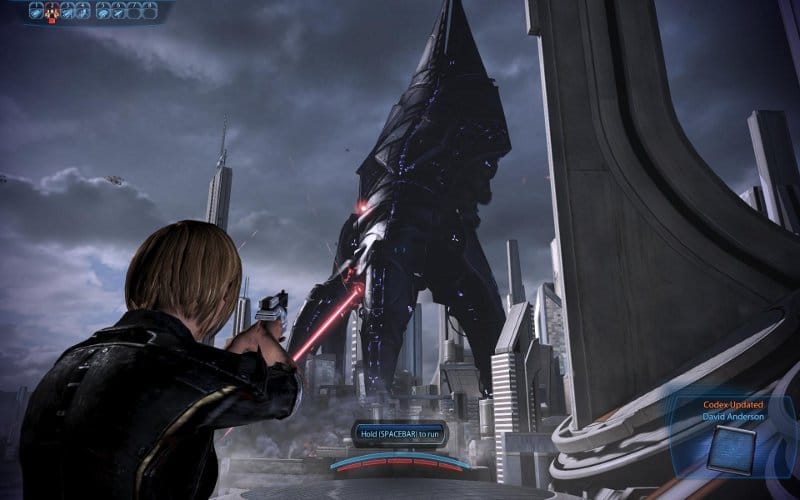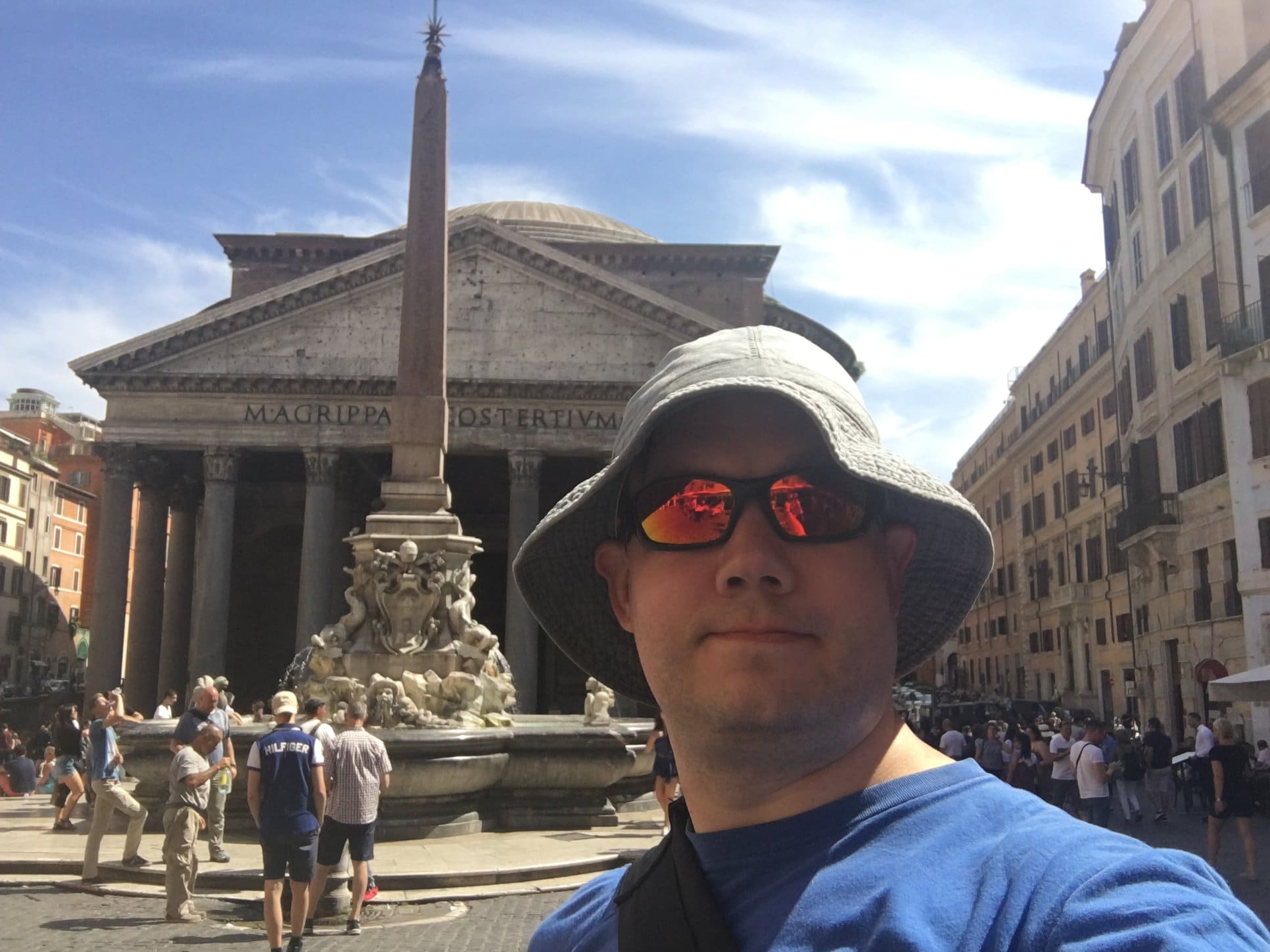Endings – Why all the fuss?
You can blame John for this one – actually you can blame both of us. You may have seen that I’ve started a video series on Mass Effect 3’s DLCs and John has started streaming Mass Effect 2. We’ve both been talking about the ending(s) to Mass Effect 3 to a greater or lesser extent, and it seems we both have differing opinions. And it seems we’re not alone. In the years since Mass Effect 3 was released, opinion has been divided between those who had no problems with the ending, and those who hated it, hated the game that came before, hated the people who wrote it, their families, their families’ pets, and some bloke they met in the bar called Bernard. And all the ones in between of course.

So I wanted to put forward my case as to why I myself loved the ending, and also look at some other games where the endings have caused some division. If you want to have your say do please leave a comment below (not too many John!) and we can try and get some sort of civilised discussion going. Also do watch our endeavours in the Mass Effect world on our Youtube channel as we get ready for Mass Effect Andromeda. Only a few more weeks now! I can’t wait!
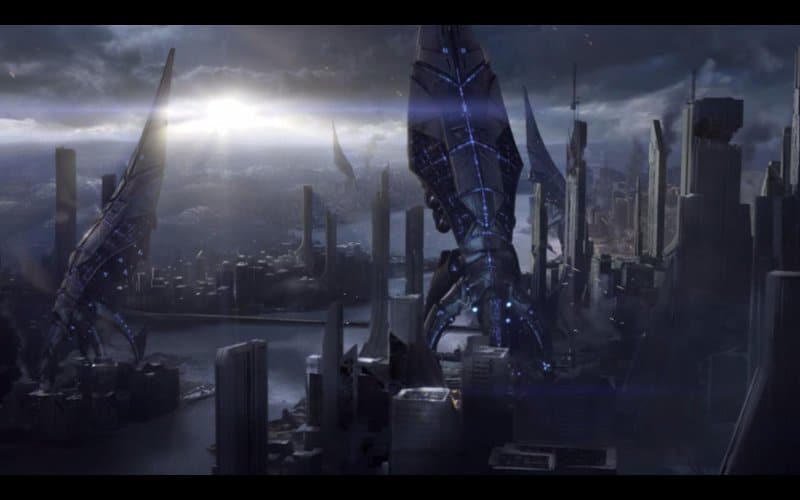
First though, I want to look at a game which mainly had the same kind of reception. One of the criticisms of ME3 was that all your choices throughout the games had no effect on the ending, and that reminded me of another Bioware game – Dragon Age II. I admit, the first time I played it through I agreed that both endings – Mage and Templar – were essentially the same in that you fought the same battles and the same bosses with pretty much the same outcome. Then more recently I played it again in preparation for Dragon Age Inquisition and I came to realise something. That apparent lack of effect was intentional. Hawke may have been the champion of Kirkwall and he may have helped many people in many large and small ways, but really he was a bystander to much greater events, namely the Mage-Templar war. Throughout the story you felt like you were being swept along by something bigger than yourself and all you could do was hold on and keep your head above water and your friends around you. That’s why nothing you do has any real effect, some things you just can’t do anything about. I came away from my second play through with a much better opinion of the game, and it’s since become one of my favourites.
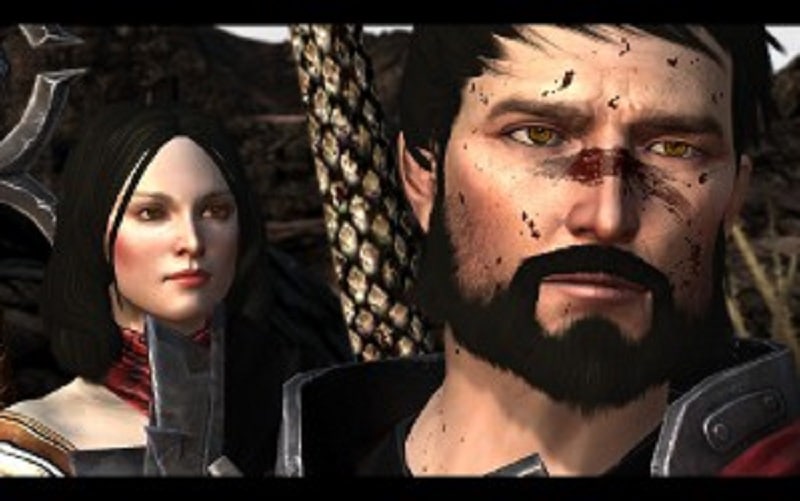
The next game I want to talk about is one I never actually finished, mainly because I quit before getting too far. Shadow of Mordor was a game I could never get into. I was expecting a game similar to Assassin’s Creed but I just found myself getting beaten up over and over again, with the enemies getting stronger each time. John has finished it however and his main issue was that the story was left open ended, just in case a sequel was made. From what I have seen and gathered from the game and from John’s experiences with it, the main focus would seem to be not the story of the game, but the story of the player. John used to regale us with tales of his battles against Krakhorn Ugliface – his own personal adversary thanks to the Nemesis system. It seems that other players enjoyed this aspect of the game more, manipulating the orc hierarchy so as to create either their own ultimate foe or bring down the army from the inside. While I got very frustrated with the game I can still appreciate that others enjoyed it immensely, particularly for the aforementioned Nemesis system. It would seem that this was the real meat of the game and what players would remember, rather than the story itself.
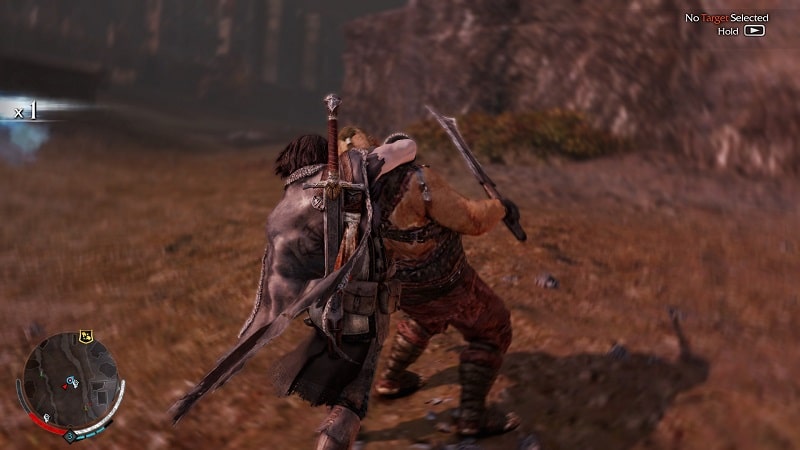
Obvious sequel hooks were also the problem for Halo 2. The second part of a trilogy always has a difficult role to fill, being neither the beginning nor the ending of a story but needing to have its own place while at the same time setting things up for the next chapter. Halo 2 was a very enjoyable game – tank battles, fighting on Earth as well as on the titular Halo, different playable characters showing both sides of the human-Covenant conflict, Gravemind – but many felt that it was let down by a very abrupt ending that seemed to be designed specifically to lead into the third game. The lack of resolution with many plot threads still dangling was seen as being very frustrating and many jokes and insults were made. But again I kind of like the idea that you get a huge build up before an epic event only for the story to cut to black right as the action is about to commence. It’s been done many times as a cliffhanger and as far as I can see it seems perfectly appropriate here. The third game picks up right where the second game leaves off and players got all the epic action they could possibly want. At least I imagine so – I haven’t actually played it, but the Finish the Fight trailer was amazing.
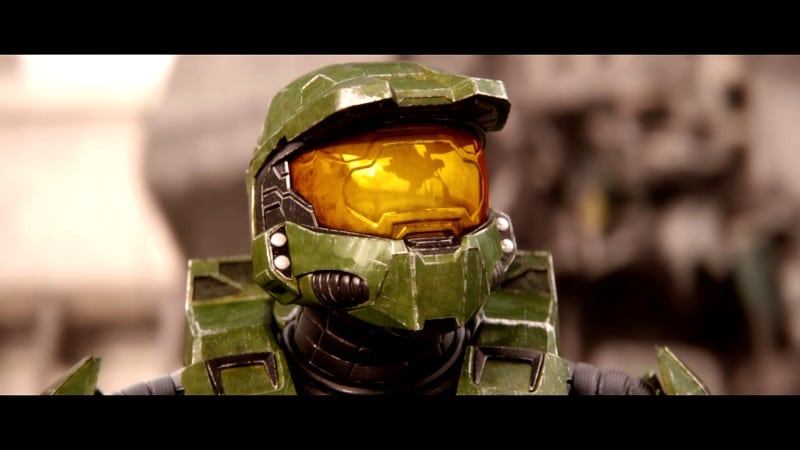
Having said all of that one of my all-time favourite endings is from a mid-series game. Assassin’s Creed Revelations. The gameplay and main storyline may not have lived up to the previous games (namely Assassin’s Creed II!) but the framing storyline – Ezio following in Altair’s footsteps and learning his secrets – was one of the best and the final section, where Ezio returned to the Assassin fortress where it all began, is one of my all-time favourite AC moments. The final scene, where Ezio discovers Altair’s body, then talks to Desmond across time and reveals the ultimate fate of the First Ones, still gives me tingles every time I see it. This game managed the difficult task of tying up Ezio’s story satisfactorily while linking in to the bigger picture and setting up the next and final game of this particular storyline. Even Assassin’s Creed Syndicate – currently my absolute favourite in the series – didn’t quite manage to accomplish the same thing, although it left some pretty huge hooks for the next game in the series, whenever that may be.
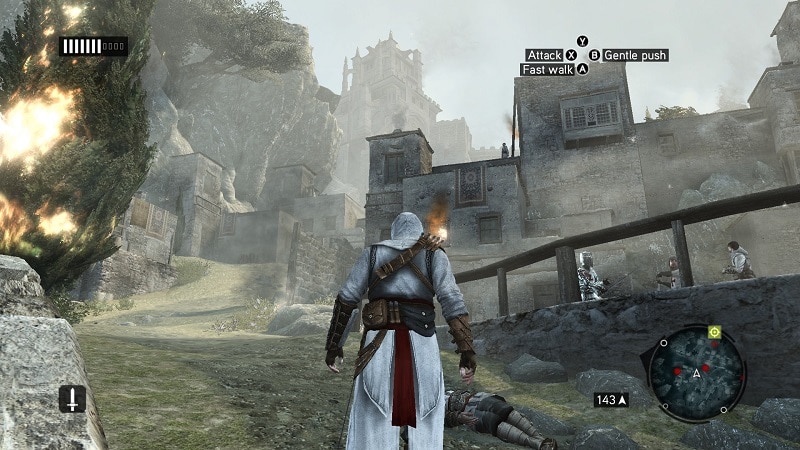
Let us now look at a couple of games where I did not like the ending. First of all I want to look at the Blackwell Epiphany. I really enjoyed the Blackwell series – especially the way that the plotlines and stories crossed between the games, so that characters in one would have an important role in another. I was really looking forward to the final game and when it came out I eagerly played it. And it was good, for the most part. Even though the storyline seemed to have changed somewhat between the previous game and this one, I still enjoyed it and I was moved by the events of the story. Until the very ending. You see, I have a strong preference for happy endings or, if not happy, at least satisfactory endings, ones which the game has earned. The ending for the Blackwell Epiphany came out of nowhere. The actual outcome for the characters had been hinted at all the way back in the first game, and a lot of the tension came from wondering if there was a way to avoid that outcome. But when the time came it was something completely different, something that hadn’t really been hinted at before and seemed to come out of nowhere. It felt tacked on and in my opinion it was thoroughly undeserved. It left such a bitter taste in my mouth that I almost regretted playing the series. It could have been different. In my opinion it should have been different.
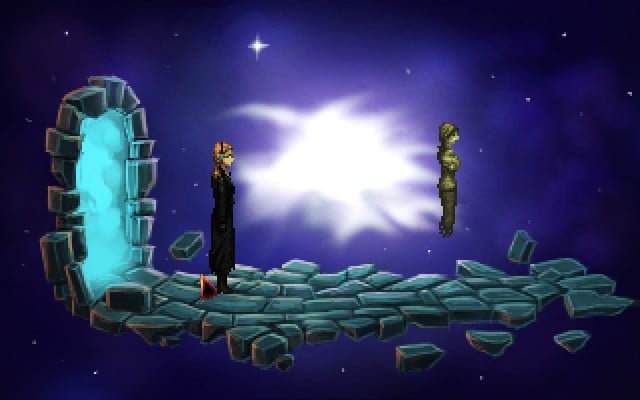
And then there is Life is Strange. Where to start. When this episodic series was first released I took a chance and bought the first episode. To say I fell in love with it is an understatement. The mystery surrounding the town, the main character’s time manipulation powers, the supernatural occurrences, even the interplay between major and minor characters, everything about it made me fall in love with it and I immediately bought the season upgrade, devouring each and every episode as it came out, being more and more moved and impressed by the unfolding story. Until the final episode. I was ready for some cataclysmic final episode where all the mysteries were explained and there was the possibility that everything would turn out alright. What I got instead was a decent first half, with the main villain of the series finally receiving his comeuppance, followed by a second half that looked like someone had seen the Scarecrow levels from Batman Arkham Asylum and thought to themselves “We should do that!” The interminable instant-fail stealth section went on for an eternity, needing many attempts to succeed. And then there was the ending. The final choice is between saving the town the main character lived in – along with all the inhabitants – and saving her friend, thereby possibly dooming the town. It felt to me as though the writers wanted a particular option to be chosen, as everything pointed that way. By then though I had been thoroughly hacked off by the stealth section and the fact that I had invested so much in these characters only to have it thrown away in a fashion that didn’t fit with some of the ideas of the series. So I chose option B. I got a ten minute ending. Apparently the other option – the “proper” option led to a full on elaborate ending. I felt cheated. I had really enjoyed the game but that ending had utterly ruined it for me.
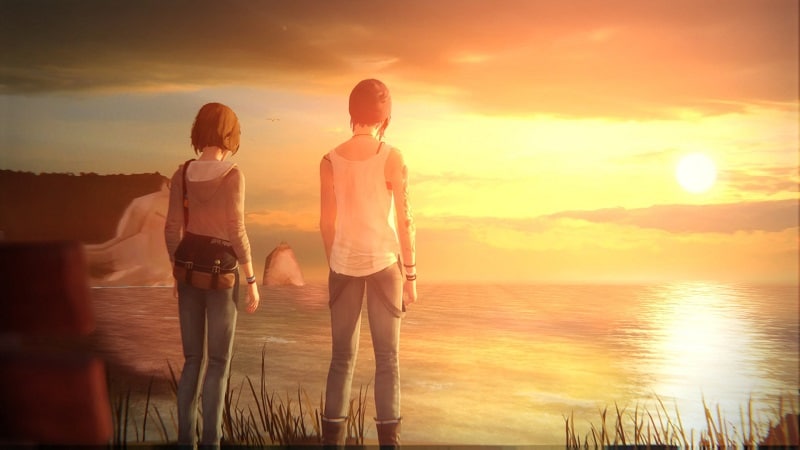
Which brings me, finally, to the game that started this whole thing off – Mass Effect 3. The issues that people had with the ending have been widely publicised – your choices didn’t mean anything, all the endings were more or less identical and so on. In response, Bioware released a DLC with extended endings which helped some of the complaints, but there was still a huge outcry. I disagree however and I’ll tell you why. The entire game can be seen as an ending. Two of the biggest set-pieces in the game, namely curing the Krogan genophage and the Quarian-Geth war, heavily rely on choices made throughout the game and the previous games. In fact, one of the writers at PC Gamer, when faced with the available outcomes at the end of the Quarian-Geth storyline, made the decision to go back to Mass Effect 2 and rework his choices from there, essentially losing thirty-five hours of gameplay just to get a better resolution, one he could live with. For me that’s where the payoff is – not something that can be expressed in gameplay mechanics, although your actions do have an effect on how easy/hard the final sections will be – but an emotional resolution where the characters you’ve been invested in for five years and three games live or die based on what you personally decide to do. Indeed, one particular character’s life literally depends on a number of seemingly unconnected side quests from the first and second games. The fact that it all comes down to one final choice seems to me to be perfectly in-keeping with the series. Even though my reactions to Life is Strange has helped me to understand Mass Effect 3’s detractors a bit better, Mass Effect 3 – and the Mass Effect series as a whole – is possibly my all-time favourite game series, both in terms of gameplay and more especially story. Once again, I’m hoping the new game can live up to that great legacy. See you in Andromeda, Commander. And don’t forget to add your voice below!
